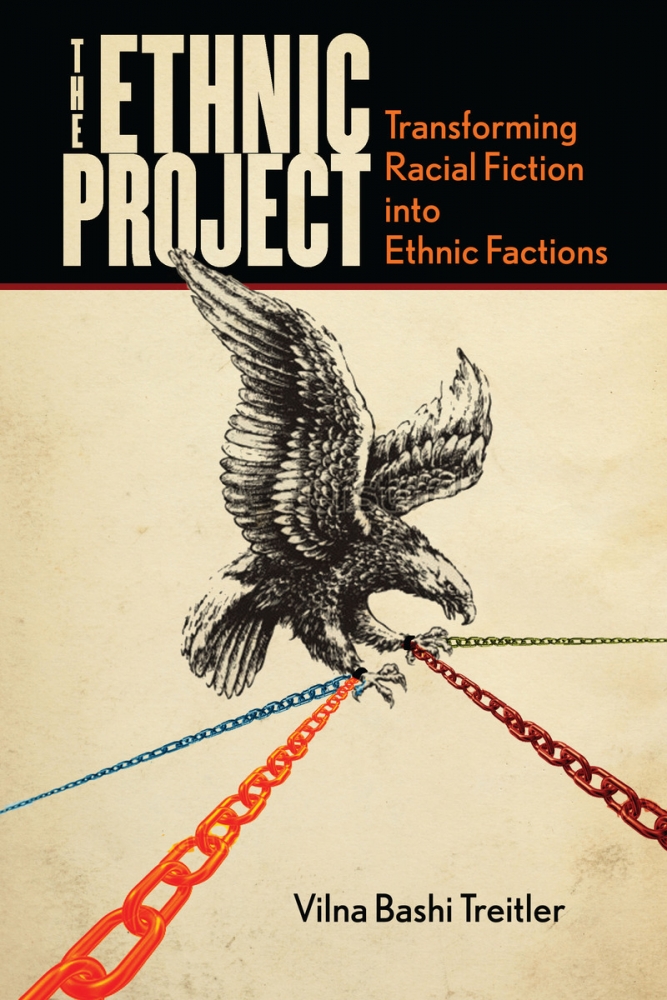
‘A Crowning Achievement’

Scholar Vilna Bashi Treitler, in her own words, has had “the great fortune to live the life of the mind, since I started life as a black girl child of immigrants, who became the first in my family to go to college.
“I’ve lived through and seen a great deal of injustice along the way, and as an empath there’s no way I can do nothing about that.”
She’s done a lot, to say the least.
Today Bashi Treitler is a prominent sociologist and professor of Black Studies at UC Santa Barbara, a social justice activist and an accomplished artist. For the breadth and depth of her work throughout her “life of the mind,” she has earned two major honors.
First, her book “The Ethnic Project,” an examination and explanation of “why the nonsensical idea of race persists, despite a century of science declaring the mythology of the concept,” was named to the Zora Canon, a list of the 100 best books ever written by an African American woman.
In addition, the American Sociological Association has conferred on Bashi Treitler its 2020 Cox-Johnson-Frazier Award, which recognizes an individual for outstanding work in the intellectual tradition of the scholars for whom it is named. Oliver Cox, Charles S. Johnson and E. Franklin Frazier “placed their scholarship in service to social justice, with an eye toward advancing the status of disadvantaged populations.”
“What means most to me is that it is an award meant to recognize scholarship in service to social justice,” Bashi Treitler said. “I have enormous gratitude for those who do this kind of work sight unseen every day, and for those who work on committees to offer recognition to those who toil in social justice work, like me.
“For the same reason, I’m breathless about being included in the Zora Canon,” she added. “I have for all my life devoted my time to contributing to positive social change in the spaces in which I participate. I have many comrades in this struggle, but they are not always visible to me. These accolades make me feel so seen.”
Named for the celebrated novelist and folklorist Zora Neale Hurston, the impressive list on which Bashi Treitler’s book appears also includes works by authors Toni Morrison, Maya Angelou, Angela Davis, Ntozake Shange, Audrey Lourde and many others.
“It seems beyond my vocabulary to conjure words to describe what this honor means to me,” said Bashi Treitler, current vice chair of the United Nations Committee for the Elimination of Racism, Afrophobia, and Colorism. “This feels like a crowning achievement, and wearing that crown helps me hold my head higher as I continue my work as an activist artist-scholar.”
Said Charles Hale, SAGE Sara Miller McCune Dean of Social Sciences, “I congratulate Professor Vilna Bashi Treitler on this impressive and richly deserved honor. ‘Scholarship in service to social justice’ — the dedicated purpose of the prestigious Cox-Johnson-Frazier award — is an apt description of Professor Bashi Treitler’s life work, which examines structures of racial and intersectional inequities, with an attentive eye to actionable remedies. This award comes on the heels of her book ‘The Ethnic Project’ being named to the Zora Canon.
“I am deeply proud that our division, and our campus, is home to such a truly original, creative and committed scholar,” he added.
Bashi Treitler is a scholar of the history of racial thought and prejudice, the history of ethnic groups in the United States, and how immigrant groups are socially and economically incorporated into new societies. Her scholarship aims to explain how and under what circumstances we create hierarchies that value some humans more than others (like race, class, gender or unequal world systems), and how these hierarchical systems can change or be dismantled.
Her work in many ways continues that of Cox, Johnson and Frazier, notable sociologists who Bashi Treitler described as inspirations for their efforts to advance black people and to edify the public about race as a global scourge, and racism as a mental illness.
“What titans!” she remarked of her predecessors. “Their focus on our globe, and not just our own country, is meaningful to me as someone who works at the intersection of race, ethnicity and international migration. Plus, each of these men worked just as hard outside of the academy to shine light on the conditions of the downtrodden, and call out those they saw as complicit with racial denigration. They are stellar models for work that melds activism with scholarship and art, like mine.”
“What are we here for if not to improve the world we live in, teach those in our classrooms to do the same, and leave behind works that can inspire future generations?” she continued. “Does the world really need another book or piece of art that doesn’t aim for such things?”



